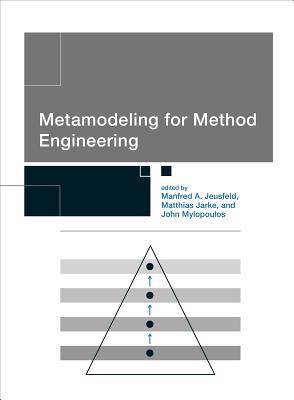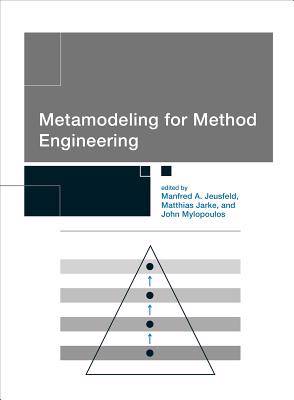
- Retrait gratuit dans votre magasin Club
- 7.000.000 titres dans notre catalogue
- Payer en toute sécurité
- Toujours un magasin près de chez vous
- Retrait gratuit dans votre magasin Club
- 7.000.0000 titres dans notre catalogue
- Payer en toute sécurité
- Toujours un magasin près de chez vous
Metamodeling for Method Engineering
Description
A practical guide to method engineering based on metamodeling, with theoretical foundations and case studies, suitable for classroom use or as a reference for practitioners.
This text is a guide to the foundations of method engineering, a developing field concerned with the definition of techniques for designing software systems. The approach is based on metamodeling, the construction of a model about a collection of other models. The book applies the metamodeling approach in five case studies, each describing a solution to a problem in a specific domain. Suitable for classroom use, the book is also useful as a reference for practitioners. The book first presents the theoretical basis of metamodeling for method engineering, discussing information modeling, the potential of metamodeling for software systems development, and the introduction of the metamodeling tool ConceptBase. The second, and larger, portion of the book reports on applications of the metamodeling approach to method engineering. These detailed case studies range from telecommunication service specification, hypermedia design, and data warehousing to cooperative requirements engineering, chemical device modeling, and design of new abstraction principles of modeling languages. Although these chapters can stand alone as case studies, they also relate to the earlier theoretical chapters. The metamodeling approach described in the book is based on the Telos metamodeling language implemented by the ConceptBase system. An accompanying CD-ROM contains the ConceptBase system and a large collection of Telos metamodels discussed in the text. The CD-ROM enables readers to start directly with method engineering, from small method chunks up to complete method definitions. The complete definition of Ed Yourdon's structured analysis method is included as an instructional example.
Spécifications
Parties prenantes
- Editeur:
Contenu
- Nombre de pages :
- 399
- Langue:
- Anglais
- Collection :
Caractéristiques
- EAN:
- 9780262101080
- Date de parution :
- 01-08-09
- Format:
- Livre
- Dimensions :
- 180 mm x 231 mm
- Poids :
- 839 g

Les avis
Nous publions uniquement les avis qui respectent les conditions requises. Consultez nos conditions pour les avis.





